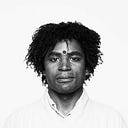Validity in Design
a mentor conversation about types of knowledge useful in design
Notes on Validity in Design
Hm, about design and correctness. I’ve been thinking along similar lines.. Particularly about language. I’ve been wondering how to get past the construct of language to find out about someone’s experience. For example interviewing..
Or talking at all.. Relies on the premise that someone can accurately communicate their experiences… That seems like a lot of room for error..
To comment on language construction and validity, I think you’ve missed the point since you are still thinking of ways of validating talk for correctness. I’ve learned that you don’t want to make people reflect unless you are studying cognition or looking for an answer to the question, but this isn’t what you are looking for when you are doing exploratory social science research including cultural or narrative analysis. It’s aiming to find out what is true or better said, what is being unconcealed. What is the person attempting to shine a light on? What is minimal in their report, how are the anecdotes structured? What are they making problematic in the story? What are the major-minor contrasts? What are at best leaps of faith? Imagine a person says the following:
“since all millennials are idealists, they are so sensitive and can’t take real life, that’s why most of them still live at their parents!”
This example uncovers a person’s typology or modelling of a certain part of their world ( of course you need to take this within it’s particular context as you can’t just analyse standalone sentences). We know this can be true because we can be nearly certain that she hasn’t met most “millennials” instead of framing this as true or false you can also look for how this information helps them interpret their world. What you might have to release is the idea that social research doesn’t start with trying to validate propositions, this habit may feel right and intellectual but I believe it comes from a culture if not a period (Enlightenment) that values validity as a part of the equipment of intellectualism (i.e. Even so called intellectuals navigate off of an intuition about what “feels” intelligent).
The next shift is to try to get you out of observing users isolated and framed in a psychological paradigm; the one patient needing deconstruction. I think you must consider that all social science needs to be fundamentally social; it needs to take one account as not adequate for a social scientific inquiry or insight but that it is looking at the interplay of a group of people or “actors”. Take triangulation, asking the same story to many people and noting the differences and affinities, you might lean towards imagining that the goal is just getting a valid portrait of the story but there is also getting an understanding of a whole group’s construction. In everyday talk we can frame it as cultural talk looking for what might seem like hyperbolic or invalid statements such as a non-psychologist commenting on a certain person,
“she’s a psychopath, damn millennials”
so you can look at this type of linguistic form to uncover how they map the world. Ethnomethodology can also help here but again, the point is not to analyse one person’s world but rather a groups world(s), real social scientific data emerges from the social, to focus on deconstructing the one can stick you back in the psychological frame and miss the point of holism and understanding a culture and the roots of their behaviour.
Social scientific interviewing isn’t reliant upon the ability to be accurate about the phenomenon on self reporting, social scientists not aware of the issues of reflection and self reporting are at best ineffective and I think must social science education inform students of Descartes and the difference between the thinking person and the experiencing person. Even in popular police narratives you have basic human assumptions being shown in the interrogation room, they lean towards beliefs such as many people don’t just lie, but they also forget; often you see the interrogators employing a series of methods to get at the “truth” to alleviate errors in human memory, deception, and cognitive process. You never hear the same story being told accurately by everyone unless they are trying to reveal deception to you. Social science seems to readily accept the issues of memory and aren’t concerned with the type of psychological digging into mental states that seems pervasive in individual research.
While one might be pondering about a method called interviewing and how to get accurate accounts wondering if one can get “accurate” accounts, lurking beneath is a validity framing along with what I think is psychologism injecting itself on the subject. The presuppositions are at least that you think one should or needs to get an accurate account to be correct. That one is in search for truth as correctness, I think you miss the difference between the two. I think phenomenology can improve your distinctions and get you asking yourself the right questions.
…I have been enlightened by Heidegger’s push towards the experience of everyday life as it is when we are not trying to be on to it. Some modes of being are reflective but many times we are just geared in,non-reflectively, think of going to lunch with friends. When you are really geared-in and engaged, the words simply come out, the food is eaten, while the sun is shining.. All without trying to “think (rationally think)” or make any of this happen. When you are trying to get at an experience you are trying to get the pre-theoretical (pre-reflective) happening or happened, so social research must be allowing the participant to shine a light on something in the world in the way that they see it. That’s why observation is just important, if not more important than interviewing in getting at a world. Because you need to allow the world to make and remake itself right in front of you. Interviewing is always placing itself upon the respondent, I think if you are studying cops and how people interact with them, use interviews as a way to shine a light on something that was lit and quickly unlit in observation.
Expanding on having lunch, there is this tacit automatic going on ness that you should attempt to get at, what’s so obvious to them? What are they simply doing with no interruption, what are they talking about and what type of language is tolerated, topics, and styles or details are kept in or out? What is this shaping? Who are the actors? What’s of value? What’s being whispered? What’s funny to all of them? A couple of them?
19/02/2013 01:50
Read more at christianramsey.co.uk

